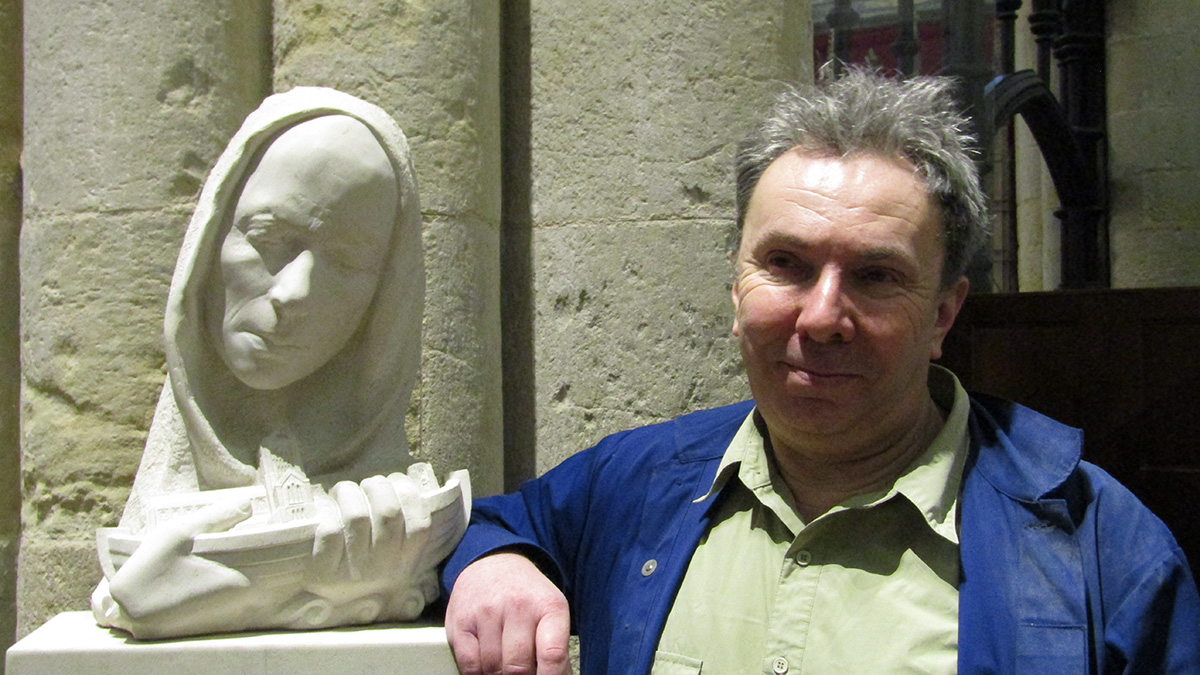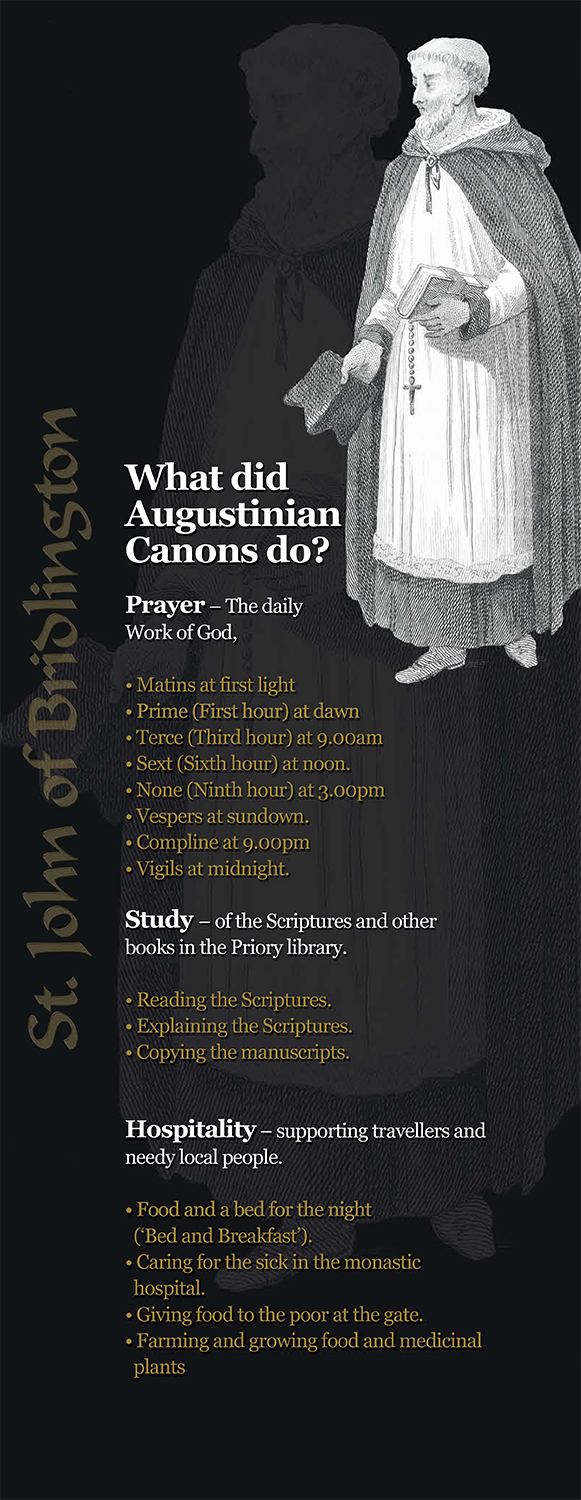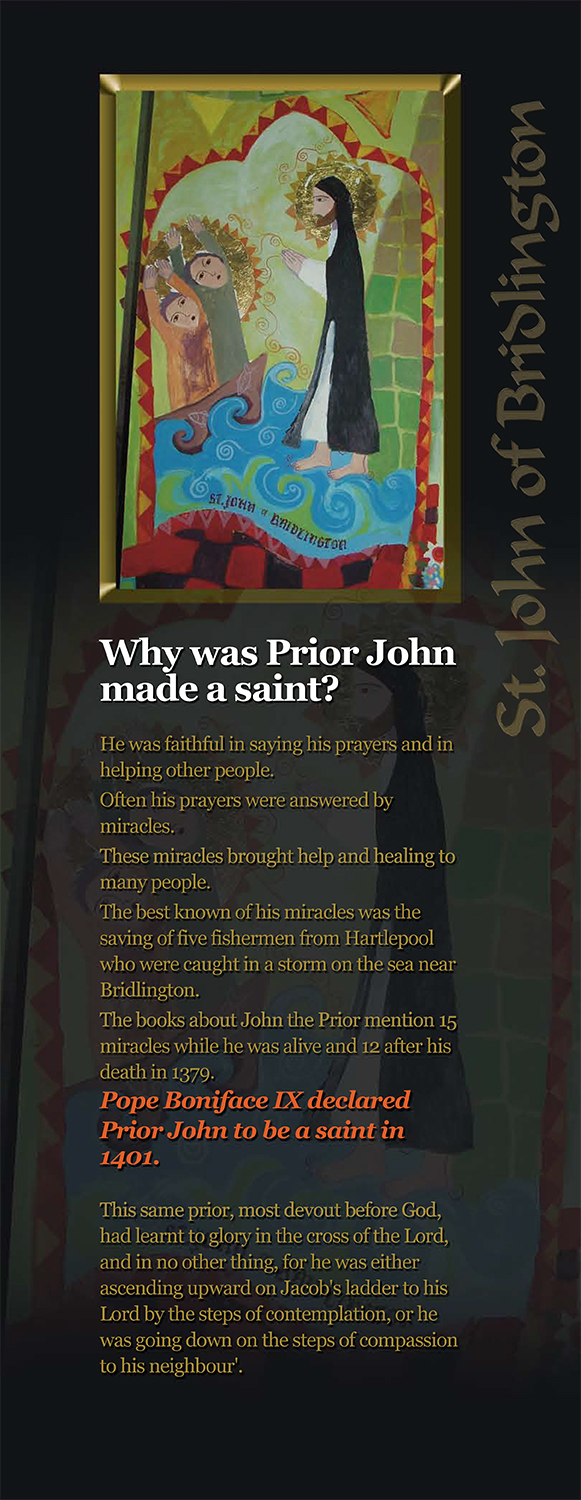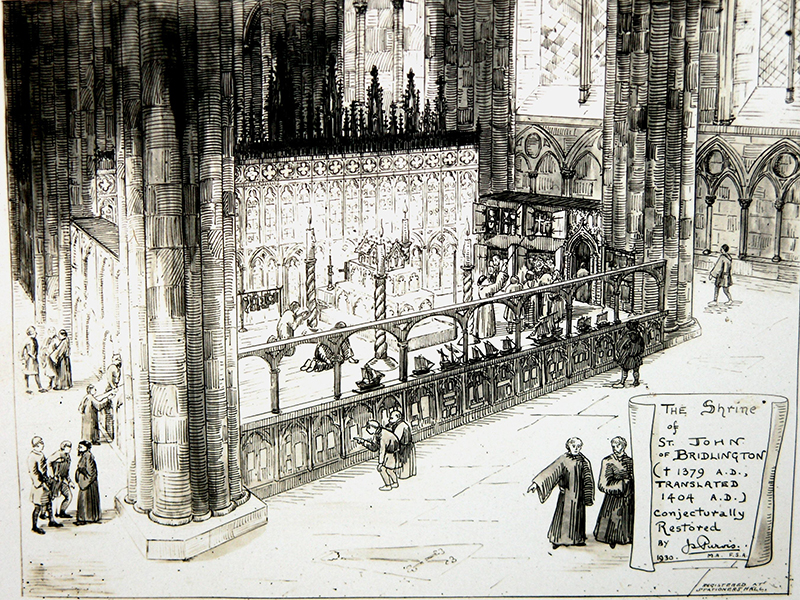Luke CHAP. 12
12:8–12
8. Also I say unto you, Whosoever shall confess me before men, him shall the Son of man also confess before the angels of God:
9. But he that denieth me before men shall be denied before the angels of God.
10. And whosoever shall speak a word against the Son of man, it shall be forgiven him: but unto him that blasphemeth against the Holy Ghost it shall not be forgiven.
11. And when they bring you unto the synagogues, and unto magistrates, and powers, take ye no thought how or what thing ye shall answer, or what ye shall say:
12. For the Holy Ghost shall teach you in the same hour what ye ought to say.
BEDE. It was said above, that every hidden work and word is to be revealed, but He now declares that this revelation is to take place in the presence of the heavenly city and the eternal Judge and King; saying, But I say unto you, Whosoever shall confess me, &c.
AMBROSE. He has also well introduced faith, stimulating us to its confession, and to faith itself He has placed virtue as a foundation. For as faith is the incentive to fortitude, so is fortitude the strong support of faith.
CHRYSOSTOM. (Hom. 34. in Matt.) The Lord is not then content with an inward faith, but requires an outward confession, urging us to confidence and greater love. And since this is useful for all, He speaks generally, saying, Whosoever shall confess me, &c.
CYRIL OF ALEXANDRIA. Now Paul says, If thou wilt confess with thy mouth the Lord Jesus, and believe in thy heart that God raised him from the dead, thou shalt be saved. (Rom. 10:9.) The whole mystery of Christ is conveyed in these words. For we must first confess that the Word born of God the Father, that is, the only-begotten Son of His substance, is Lord of all, not as one who had gained His Lordship from without and by stealth, but who is in truth by His nature Lord, as well as the Father. Next we must confess that God raised Him from the dead, who was Himself truly made man, and suffered in the flesh for us; for such He rose from the dead. Whoever then will so confess Christ before men, namely, as God and the Lord, Christ will confess him before the angels of God at that time when He shall descend with the holy angels in the glory of His Father at the end of the world.
EUSEBIUS. But what will be more glorious than to have the only-begotten Word of God Himself to bear witness in our behalf at the divine judgment, and by His own love to draw forth as a recompense for confession, a declaration upon that soul to whom He bears witness, For not as abiding without him to whom He bears witness, but as dwelling in him and filling him with light, He will give His testimony. But having confirmed them with good hope by so great promises, He again rouses them by more alarming threats, saying, But he that denieth me before men, shall be denied before the Angels of God.
CHRYSOSTOM. (ubi sup.) Both in condemnation a greater punishment is announced, and in blessing a greater reward; as if He said, Now you confess and deny, but I then, for a far greater recompense of good and evil awaits them in the world to come.
EUSEBIUS. He rightly declares this threatening, in order that none should refuse to confess Him by reason of the punishment, which is to be denied by the Son of God, to be disowned by Wisdom, to fall away from life, to be deprived of light, and to lose every blessing; but all these things to suffer before God the Father who is in heaven, and the Angels of God.
CYRIL OF ALEXANDRIA. Now they who deny are first indeed those who in time of persecution renounce the faith. Besides these, there are heretical teachers also, and their disciples.
CHRYSOSTOM. There are other modes also of denying which St. Paul describes, saying, They profess that they know God, but in works they deny him. (Tit. 1:16.) And again, If any provide not for his own, and specially for those of his own house, he hath denied the faith, and is worse than an infidel. (1 Tim. 5:8.) Also, Flee from covetousness, which is idolatry. (Col. 3:5.) Since then there are so many modes of denial, it is plain that there are many likewise of confession, which whosoever has practised, shall hear that most blessed voice with which Christ greets all who have confessed Him. But mark the precaution of the words. For in the Greek he says, Whosoever shall confess in Me, shewing that not by his own strength, but by the aid of grace from above, a man confesses Christ. But of him who denies, He said not “in Me,” but me. For though being destitute of grace he denies, he is nevertheless condemned, because the destitution is owing to him who is forsaken, or he is forsaken for his own fault.
BEDE. But lest from what He says, that those who have denied Him are to be denied, it should be supposed that the condition of all was alike, that is, both of those who deny deliberately, and those who deny from infirmity or ignorance, He immediately added, And whosoever shall speak a word against the Son of Man, it shall be forgiven him.
CYRIL OF ALEXANDRIA. But if our Saviour means to imply, that if any injurious word is spoken by us against a common man, we shall obtain pardon if we repent, there is no difficulty in the passage, for since God is by nature merciful, He restores those who are willing to repent. But if the words are referred to Christ how is he not to be condemned who speaks a word against Him?
AMBROSE. Truly by the Son of Man we understand Christ, Who by the Holy Spirit was born of a virgin, seeing that His only parent on earth is the Virgin. What then, is the Holy Spirit greater than Christ, that they who sin against Christ should obtain pardon, while they who offend against the Holy Spirit are not thought worthy to obtain it? But where there is unity of power there is no question of comparison.
ATHANASIUS. (Ep. 4. ad Serap.) The ancients indeed, the learned Origen and the great Theognostus, describe this to be the blasphemy against the Holy Ghost, when they who have been counted worthy of the gift of the Holy Spirit in Baptism, fall back into sin. For they say that for this reason they can not obtain pardon; as Paul says, It is impossible for those who have been made partakers of the Holy Ghost to renew them again, &c. (Heb. 6:4.)
But each adds his own explanation. For Origen gives this as his reason; God the Father indeed penetrates and contains all things, but the power of the Son extends to rational things only; the Holy Spirit is only in those who partake of Him in the gift of Baptism. When then catechumens and heathens sin, they sin against the Son who abideth in them, yet they may obtain pardon when they become worthy of the gift of regeneration. But when the baptized commit sin, he says that their offence touches the Spirit, after coming to whom they have sinned, and therefore their condemnation must be irrevocable.
But Theognostus says, that he who has gone beyond both the first and second threshold deserves less punishment, but he who has also passed the third, shall no more receive pardon. By the first and second threshold, he speaks of the doctrine of the Father and the Son, but by the third the partaking of the Holy Spirit. According to St. John, When the Spirit of truth is come, he will lead you into all truth. (John 16:13.) Not as though the doctrine of the Spirit was above that of the Son, but because the Son condescends to those who are imperfect, but the Spirit is the seal of those who are perfect. If then not because the Spirit is above the Son, blasphemy against the Spirit is unpardonable; but because remission of sin is indeed to the imperfect, but no excuse remains to the perfect, therefore since the Son is in the Father, He is in those in whom the Father and the Spirit are not absent, for the Holy Trinity cannot be divided. Besides this, if all things were made by the Son, and all things consist in Him, He will Himself be truly in all; so that it must needs be, that he who sinneth against the Son, sinneth against the Father also, and against the Holy Spirit. But holy Baptism is given in the name of the Father, and the Son, and the Holy Spirit. And so they that sin after baptism commit blasphemy against the holy Trinity. But if the Pharisees had not received baptism, how did He condemn them as if they had spoken blasphemy against the Holy Spirit, of which they were not yet partakers, especially since He did not accuse them simply of sin, but of blasphemy? But these differ, for he who sins transgresses the Law, but he who blasphemes offends against the Deity Himself. But again, if to those who sin after baptism there is no remission of the punishment of their offences, how does the Apostle pardon the penitent at Corinth; (2 Cor. 11:10) but he travails in birth of the backsliding Galatians until Christ be formed again in them. (Gal. 4:19.)
And why also do we oppose Novatus, who does away with repentance after baptism? The Apostle to the Hebrews does not thus reject the repentance of sinners, but lest they should suppose that as according to the rites of the Law, under the veil of repentance there could be many and daily baptisms, he therefore warns them indeed to repent, but tells them that there could be only one renewal, namely, by Baptism. But with such considerations I return to the dispensation (οἰκονομίαν) which is in Christ, who being God was made man; as very God raised the dead; as clothed with the flesh, thirsted, laboured, suffered. When any then, looking to human things, see the Lord athirst or in suffering, and speak against the Saviour as if against a man, they sin indeed, yet may speedily on repentance receive pardon, alleging as excuse the weakness of His body. And again when any, beholding the works of Deity, doubt concerning the nature of our Lord’s body, they also sin grievously. But these too if they repent may be quickly pardoned, seeing that they have an excuse in the greatness of the works. But when they refer the works of God to the Devil, justly do they undergo the irrevocable sentence, because they have judged God to be the Devil, and the true God to have nothing more in His works than the evil spirits. To this unbelief then the Pharisees had come. For when the Saviour manifested the works of the Father, raising the dead, giving sight to the blind, and such like deeds, they said that these were the works of Beelzebub. As well might they say, looking at the order of the world and the providence exercised over it, that the world was created by Beelzebub. As long then as regarding human things they erred in knowledge, saying, Is not this the carpenter’s son, and how knoweth this man things which he never learnt? He suffered them as sinning against the Son of man; but when they wax more furious, saying that the works of God are the works of Beelzebub, He no longer endured them. For thus also He endured their fathers so long as their murmurings were for bread and water; but when having found a calf, they impute to it the divine mercies they had received, they were punished. At first indeed multitudes of them were slain, afterwards He said indeed, Nevertheless, in the day when I visit I will visit their sin upon them. (Exod. 32:34.) Such then is the sentence passed upon the Pharisees, that in the flame prepared for the devil they shall be together with him everlastingly consumed. Not then to make comparison between a blasphemy spoken against Himself and the Holy Spirit said He these things, as if the Spirit were the greater, but each blasphemy being uttered against Him, He shews the one to be greater, the other less. For looking at Him as man they reviled Him, and said that His works were those of Beelzebub.
AMBROSE. Thus it is thought by some that we should believe both the Son and the Holy Spirit to be the same Christ, preserving the distinction of Persons with the unity of the substance, since Christ both God and man is one Spirit, as it is written, The Spirit before our face, Christ the Lord; (Lam. 4:20.) the same Spirit is holy, for both the Father is holy, and the Son holy, and the Spirit holy. If then Christ is each, what difference is there except we know that it is not lawful for us to deny the divinay of Christ?
BEDE. Or else; Whoso saith that the works of the Holy Spirit are those of Beelzebub, it shall not be forgiven him either in the present world, or in that which is to come. Not that we deny that if he could come to repentance he could be forgiven by God, but that we believe that such a blasphemer as by the necessity of his deserts he would never come to forgiveness, so neither to the fruits themselves of a worthy repentance; according to that, He hath blinded their eyes, so that they should not be converted, and I should heal them. (Isa. 6:10.)
CYRIL OF ALEXANDRIA. But if the Holy Spirit were a creature, and not of the divine substance of the Father and the Son, how does an injury committed against Him entail upon it so great a punishment as is denounced against those that blaspheme against God?
BEDE. Nor however are all they who say that the Spirit is not holy, or is not God, but is inferior to the Father and the Son, involved in the crime of unpardonable blasphemy, because they are led to do it through human ignorance, not a demoniacal hatred, as the rulers of the Jews were.
AUGUSTINE. (Serm. 71.) Or if it were here said, “Who hath spoken any blasphemy whatever against the Holy Spirit,” we ought then to understand thereby “all blasphemy;” but because it was said, who blasphemeth against the Holy Spirit, let it be understood of him that blasphemed not in any way, but in such a manner that it can never be pardoned him. For so when it was said, The Lord tempteth no man, (James 1:13.) that is not spoken of every, but only of a certain kind of temptation. Now what that kind of blasphemy against the Holy Spirit is, let us sec. The first blessing of believers is forgiveness of sins in the Holy Spirit. Against this free gift the impenitent heart speaks. Impenitence itself therefore is blasphemy against the Spirit, which is neither forgiven in this world, nor in that which is to come; for repentance gains that forgiveness in this world which is to avail in the world to come.
CYRIL OF ALEXANDRIA. But the Lord after having inspired such great fear, and prepared men to resist those who depart from a right confession, commanded them for the rest to take no care what they should answer, because for those who are faithfully disposed, the Holy Spirit frames fit words, as their teacher, and dwelling within them. Whence it follows, And when they shall bring you into synagogues, take no thought how or what ye shall answer.
GLOSS. (inter.) Now he says, how, with respect to the manner of speaking, what, with respect to the manner of intention. How ye shall answer to those who ask, or what ye shall say to those who wish to learn.
BEDE. For when we are led for Christ’s sake before judges, we ought to offer only our will for Christ, but in answering, the Holy Spirit will supply His grace, as it is added, For the Holy Spirit will leach you, &c.
CHRYSOSTOM. (Hom. 33. in Matt.) But elsewhere it is said, Be ready to answer every one who shall ask you for a reason of the hope that is in you. When indeed a contest or strife arises among friends, He bids us take thought, but when there are the terrors of a court of justice and fear on every side, He gives His own strength so as to inspire boldness and utterance, but not dismay.
THEOPHYLACT. Since then our weakness is twofold, and either from fear of punishment we shun martyrdom, or because we are ignorant and can not give a reason of our faith, he has excluded both; the fear of punishment in that He said, Fear not them which kill the body, but the fear of ignorance, when He said, Take no thought how or what ye shall answer, &c.
Catena Aurea Luke 12











